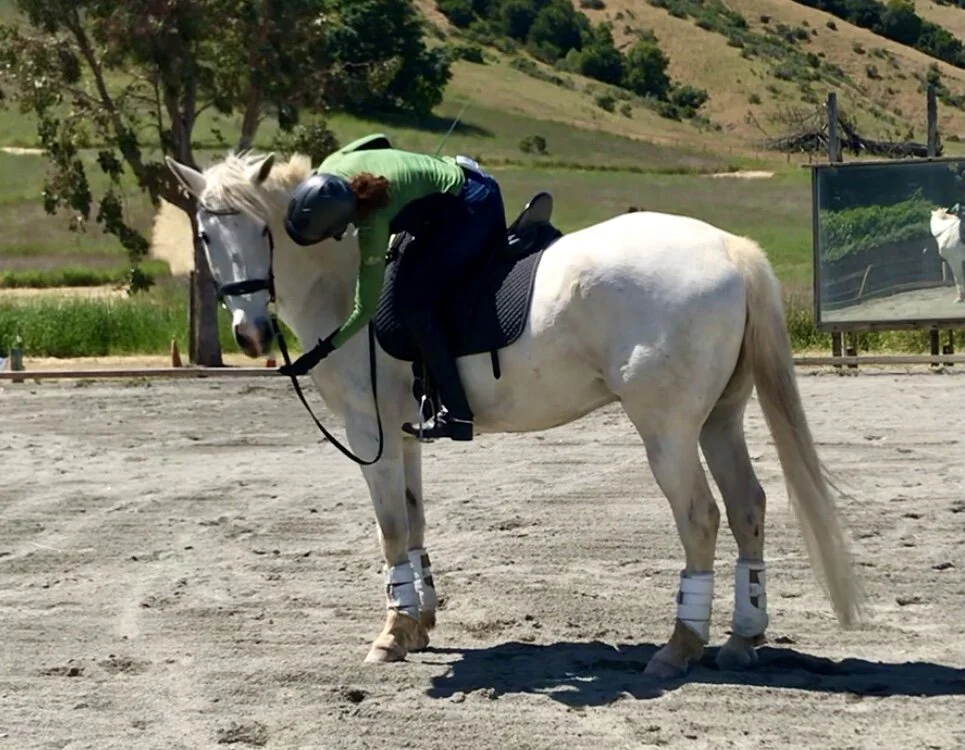Riding in Good Faith
Acting in good faith, in general, has become something that cannot be taken for granted. According to Merriam-Webster, good faith is defined as honesty or lawfulness of purpose. In other words, you’re serious about what you are looking to accomplish and you realize that your words and conduct have meaning. In a world where misinformation, intentional or accidental, is prevalent, it’s ever more important to make sure that the place we are coming from in our interactions with one another as well as our horses is one of informed and well intentioned “good faith.”
The German governing body for equestrians, the FN, publishes ethical principles that ought to govern any and all interactions with horses. This is nothing new, but if you asked any American equestrian, professional or amateur alike, which ethical principles were guiding their relationship with the horse, they’d probably try to make something up on the spot. For clarity, you’ll find all nine principles below. It’s worth taking that minute to actually read them. And then possibly let them sink in for another minute and mentally noting the violations that come to mind right away. Chances are we all have done or were asked to do something by someone we considered an authority figure that is not in the horse’s best interest (whether it was for lack of knowledge, willful ignorance, laziness, or greed is another matter) . And if not, you and your horses have been incredibly lucky. (And sadly also, not every German adheres to these, but at least they exist.)
Remember that acting in good faith, like riding and training in good faith, requires you to be fully accountable. Just remember the Milgram experiments to see what happens when people absolve themselves of responsibility because someone else in charge. (If you’re not familiar with them, stop reading this and study up on Milgram instead.)
In any case, here are the nine ethical principles for equestrians:
1. Whoever is interacting with the horse takes full responsibility for the living being entrusted to him/her.
2. The way the horse is kept must meet his natural needs.
3. The physical and psychological health has to be considered above all else, regardless of how the horse is used.
4. Every horse must be respected, regardless of breed, age, sex, or use in breeding, leisure, or sport.
5. The knowledge of the history of the horse, of his needs as well as of the skills to interact with the horse are cultural treasures. They must be preserved and passed on to the next generation.
6. Interaction with horses has a personality forming effect, especially for young people. This aspect is to be kept in mind and promoted.
7. The person who is using the horse in sport has to undergo training and so does the horse. The goal of any training is the highest possible degree of harmony between horse and human.
8. Using the horse in competitive sports or for general riding, driving, or vaulting, has to be guided by his natural predisposition, willingness to achieve, and achievement potential. Influencing the achievement potential with drugs or unfair treatment is to be rejected and must be punished.
9. The responsibility of the person in charge of the horse extends to the horse's end of life as well. The person has to fulfill it with the horse's best interest at heart.
When good faith is honesty or lawfulness of purpose, let’s just assume our purpose is summarized in the above principles. When training a horse, any interaction with them “is” training, not only when we think we’re teaching our horses something. The sum of our interactions is much greater than all its parts. It adds up to the horse’s view of humans and his assessment of our trustworthiness. Our knowledge + skill + emotional stability + patience + dedication + financial investment + allowing the horse to be a horse + love make the difference between a horse that may or may not merely function and one that enjoys his job and actively works with his rider. It’s the kind of attitude that makes relationships work in general.
We’re expecting our horses to work with us in good faith - that if we’re treating them well and asking them correctly, they should respond cooperatively and do what we ask. There is a FB group entirely dedicated to equestrian mishaps. Finally that buck/stop/rear/run out etc. caught on video finds a large, cheering audience. And sure, some clips are funny since mostly horse and human escape unharmed. But a large portion of these videos show ill prepared horses with under-skilled riders attempting things they really should not - yet - even consider. It’s like sending your first grader to take the sixth grade final and then calling her an idiot for failing and making you look bad as a parent. Never mind what it would do to the kid’s confidence and self esteem - and motivation to continue learning.
I’d love for us all to keep thinking about training and caring for our horses in good faith, and what it means to be 100% accountable. Is there something that needs to change?







